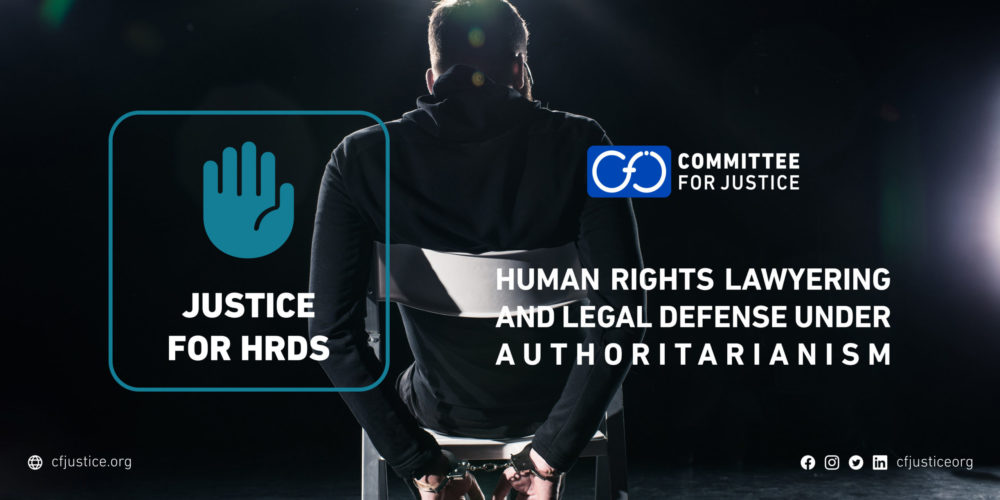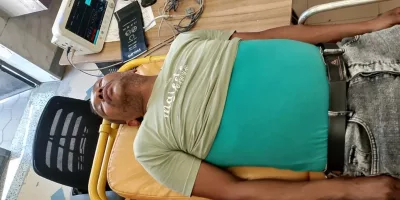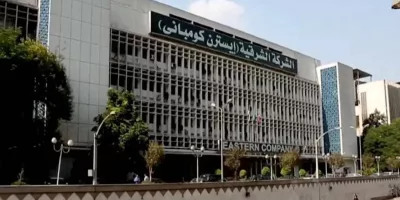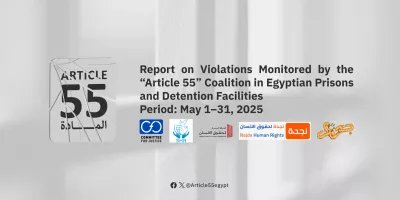Human rights lawyers in Egypt have become another target of crackdown by the government of President Abdelfattah el-Sisi, according to a new paper by the Committee for Justice.
Human rights lawyers face reprisals for attempting to protect the rights of defendants to access justice through the country’s judicial institutions, and to monitor and document the human rights violations that occur against those detained in politically motivated cases.
The research paper entitled “Human rights lawyers and the defense profession under authoritarianism”, is part of CFJ’s project Human Rights Defenders Watch. Its goal is to show the impact of human rights violations against human rights defenders in the legal defense profession. It highlights the main challenges facing the human rights law movement since its inception in the nineties of the last century through the icons of the civil rights movement, and its expansion to include the Islamic human rights movement since the political upheavals of 2013.
The paper relied on the hundreds of violations against lawyers that CFJ has recorded since 2013 (the information was published on the Justice Watch platform this year), as well as dozens of documented cases with the families of the victims and analysis of cases involving lawyers and human rights defenders through the work of the Detention Watch and Trial Watch teams at CFJ, as well as the testimonies of lawyers and human rights defenders in Egypt.
The paper also seeks to analyze the fate of the human rights law movement- a generational movement that began in the nineties of the last century in the form of human rights organizations, later turning into political movements that mobilize youth, workers and factional groups, up to the January 25, 2011 demonstrations, then crystallizing in a network of human rights/politics lawyers, then now becoming the target of judicial and security authorities.
The paper reviews literature of human rights defense in the context of authoritarianism, focusing on the definition of Cause Lawyering and its most prominent dimensions, as well as studies that specifically dealt with the Egyptian case.
The paper also deals with the political and legal frameworks that pushed rights lawyers to the front of political work, and the extent of the security authorities’ targeting of human rights lawyers in Egypt since 2014. The paper goes on to address the defense profession in light of the “securitization of the judiciary”, and then the future of rights lawyers between union or human rights work in light of security risks and political targeting.
The paper also touches on the factual development of “case lawyers” as opposed to “professional lawyers or private sector lawyers” in Egypt, specifically since the scene of the massacre of hundreds of citizens in the Rabaa al-Adawiya and al-Nahda squares, and the subsequent normalization of the narratives of “honorable citizens” in the face of what the authorities considered “Terrorism.” The authorities also enacted a number of laws and decisions that introduced penalties of life imprisonment and the death penalty, against the background of very broad and vague accusations, which undermined the principles and guarantees of a fair trial.
On the other hand, the Egyptian authorities issued Anti-Terrorism Law No. 94/2015, and its amendments, the latest of which was Law 149/2021, to extend the definition of “terrorist” to include charitable associations, human rights institutions and gangs, and expanded the work of “financing” and “promotion” including the provision of tools or means to carry out the act classified as “terrorist” without knowing its purpose, and generalizing the meaning of “money” used in financing terrorism to legitimize the appropriation of private and individual property, which added more problems to the notorious law 8/2015 regarding the regulation of lists of terrorist entities and terrorists.
The paper highlights the role of Terrorism Circuits judges in criminal courts in undermining the rights of the defense and issuing harsh prison sentences and death sentences, and missing the levels of litigation for the accused- especially the role of judges such as Naji Shehata, Hassan Farid, and Sherine Fahmy, who are notorious of loyalty to the political system. Authorities also codified “exception” by deciding the jurisdiction of the military judiciary in crimes committed within / on / against “public and vital installations” as “military” facilities that the armed forces protect.
In the same period, the executive authority’s encroachments on the work of the judiciary expanded. In addition to establishing judicial departments that specialize in specific cases to try certain people and select their judges who show loyalty to the ruling regime, articles 7, 8, 14 and 15 of the Emergency Law, followed by the 2019 constitutional amendments, allow the President of the Republic to also hold the position of Chairman of the Supreme Council of Judicial Bodies.
At the conclusion of its paper, CFJ emphasized that as a result of all of the above, the roles of human rights lawyers have shifted from arguing for rights, freedoms, justice, rule of law, separation of powers and civil society rights, to individual and organized efforts to document, account and record human rights violations and fair trial guarantees, humanitarian action and providing moral support to victims of arbitrary detention and political repression in general. This represents the biggest challenges of the human rights movement in Egypt since its inception to the present time, as the credibility of human rights lawyers depends on their assistance to victims / entrusted with real defense mechanisms and tools – even if they are no longer effective -, especially recording the incidents of torture and enforced disappearance and defenses by discussing witnesses and other tools whose success in one case among thousands of cases represents the basis of the credibility of the human rights movement among clients and the general public. It also contributes to building a popular base that expands the thought of human rights and human rights work from human rights groups and the interests of narrow organizations to the general individuals and lawyers.






